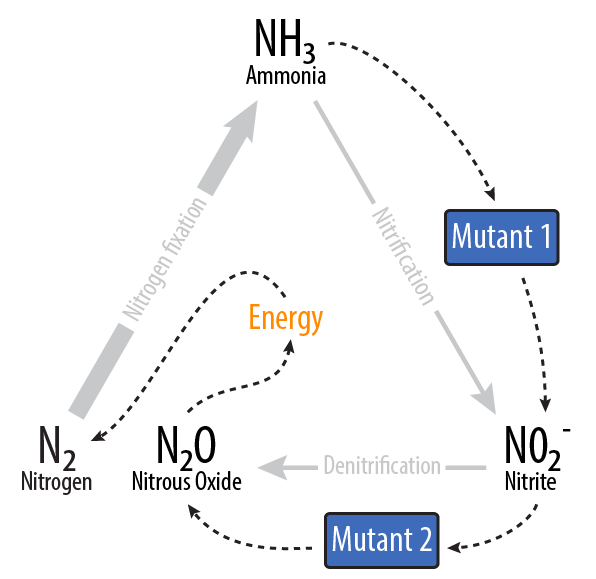Team:DTU-Denmark
From 2013.igem.org
Requiem for a Stream:
From Ammonia Pollution to Energy Production via Denitrification
Intense agriculture is the base of feeding a growing world population. However it comes at a cost for the environment. Part of this is the growing problem of ammonia pollution. As the demand for food articles is steadily increasing farmers turn to extensive use of fertilizers and nitrogen-enriched animal feeds to increase their yield. Much of this nitrogen comes in the form of ammonia and accumulates in the argicultural runoff, which pollutes surface bodies of water like lakes and streams but also the groundwater. Our project is a requiem for those streams. Our goal is to remove surplus ammonia from wastewater, and via two E. coli mutants turn it into nitrous oxide.
TODO: There should either be a link to our video or it should be embedded here. Alternatively, we can use the scanned pictures.
Ammonia is a common pollutant in agricultural runoff, and excess ammonia in the environment leads to increased algae growth and eutrophication, which starves other water-borne organisms for oxygen. Our project reverses nitrogen fixation, and is a means to clean up polluted streams and wastewater. The final product is nitrous oxide, which can be sold as an industrial product or reclaimed and used as a source of small scale sustainable energy.
Highlights
- We successfully characterized our first transformant for Mutant 1.
- We constructed and characterized a synthetic promoter library built on the arabinose inducible promoter.
- We successfully targeted proteins to the periplasm in our Hello World pilot project.
- We conducted several events around human practices, including a biobrick workshop and a discussion on IP and synthetic biology.
For more information on our project, please see our project details, and for information on the experiments we did to characterize the mutants, see an overview of the experiments we conducted. Also be sure to check out our online lab notebook, and the human practices events that we hosted.
 "
"





